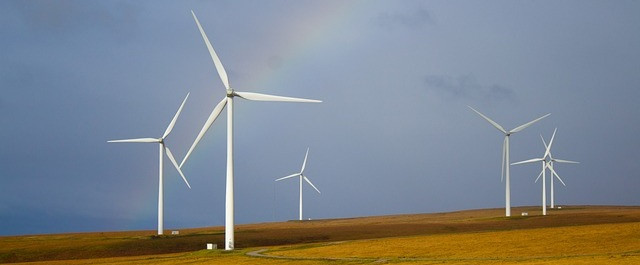UK and Global Energy Resources
This section explains UK and Global energy resources covering, renewable energy and non-renewable energy, the reliability of energy resources and the ethical and environmental concerns.
Energy Resources
Energy resources are used to generate electricity, provide heating, and power transport. They can be categorised into renewable and non-renewable resources.
Non-Renewable Energy Resources
Non-renewable resources are finite and will eventually run out. They include:
- Fossil Fuels (Coal, Oil, Natural Gas) – Burnt to generate electricity and power transport.
- Nuclear Power (Uranium, Plutonium) – Releases energy through nuclear fission.
Advantages of Non-Renewable Energy
✔ Provides reliable, large amounts of energy.
✔ Fossil fuels are relatively cheap and widely available.
✔ Nuclear energy does not produce greenhouse gases.
Disadvantages of Non-Renewable Energy
✘ Releases greenhouse gases, contributing to climate change (fossil fuels).
✘ Causes air pollution and acid rain.
✘ Nuclear waste is highly radioactive and difficult to dispose of.
✘ Extraction (e.g. mining, drilling) damages the environment.
Renewable Energy Resources
Renewable resources will not run out and are more environmentally friendly. They include:
- Solar Power – Converts sunlight into electricity using solar panels.
- Wind Power – Uses wind turbines to generate electricity.
- Hydroelectric Power – Uses water flow (e.g. dams) to generate electricity.
- Tidal Power – Harnesses the movement of tides to generate electricity.
- Wave Power – Uses ocean waves to turn turbines.
- Geothermal Energy – Uses heat from underground.
- Biomass – Burns organic material (e.g. wood, crops) for energy.
Advantages of Renewable Energy
✔ Sustainable and will not run out.
✔ Produces little or no pollution or greenhouse gases.
✔ Reduces reliance on fossil fuels.
Disadvantages of Renewable Energy
✘ Often less reliable (e.g. wind and solar depend on weather conditions).
✘ Expensive to set up (e.g. wind farms, hydroelectric dams).
✘ Can have environmental impacts (e.g. hydroelectric power can flood habitats).
Reliability of Energy Resources
Different energy resources vary in reliability:
Fossil fuels and nuclear power are very reliable, as they provide a constant supply of energy.
Renewable sources can be less reliable:
- Wind and solar depend on weather conditions.
- Tidal and hydroelectric are more predictable but need specific locations.
- Geothermal and biomass are more consistent but not available everywhere.

To improve reliability, a mix of energy sources is often used.
Ethical and Environmental Concerns
Environmental Concerns
- Climate Change – Burning fossil fuels releases carbon dioxide (CO₂), contributing to global warming.
- Air Pollution – Fossil fuel combustion produces harmful gases like sulphur dioxide, causing acid rain.
- Habitat Destruction – Deforestation for biomass, mining, and dam construction can destroy ecosystems.
- Nuclear Waste – Radioactive waste from nuclear power plants needs careful disposal.
- Visual and Noise Pollution – Wind farms and hydroelectric dams can spoil landscapes and disturb wildlife.
Ethical Concerns
- Fair Access to Energy – Some countries lack access to reliable energy supplies, leading to inequality.
- Exploitation of Resources – Energy extraction can harm local communities and ecosystems.
- Land Use Conflicts – Large-scale renewable projects may displace people or harm biodiversity.
- Nuclear Safety – The risk of accidents (e.g. Chernobyl, Fukushima) raises concerns about nuclear power.
Governments must balance energy demand, environmental protection, and ethical responsibility to create a sustainable future.
This guide outlines the key aspects of UK and global energy resources, including different energy sources, their reliability, and the ethical and environmental challenges involved. Understanding these issues is crucial for making informed decisions about future energy use.
